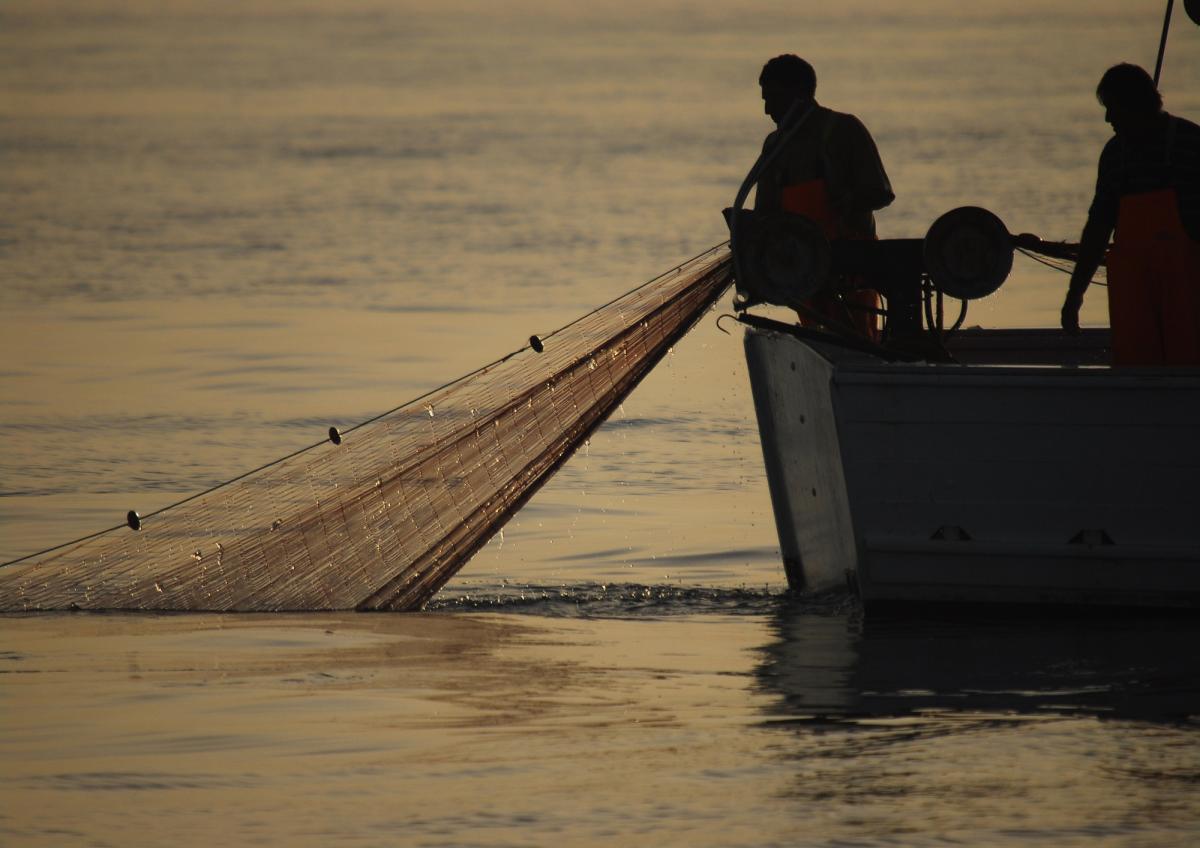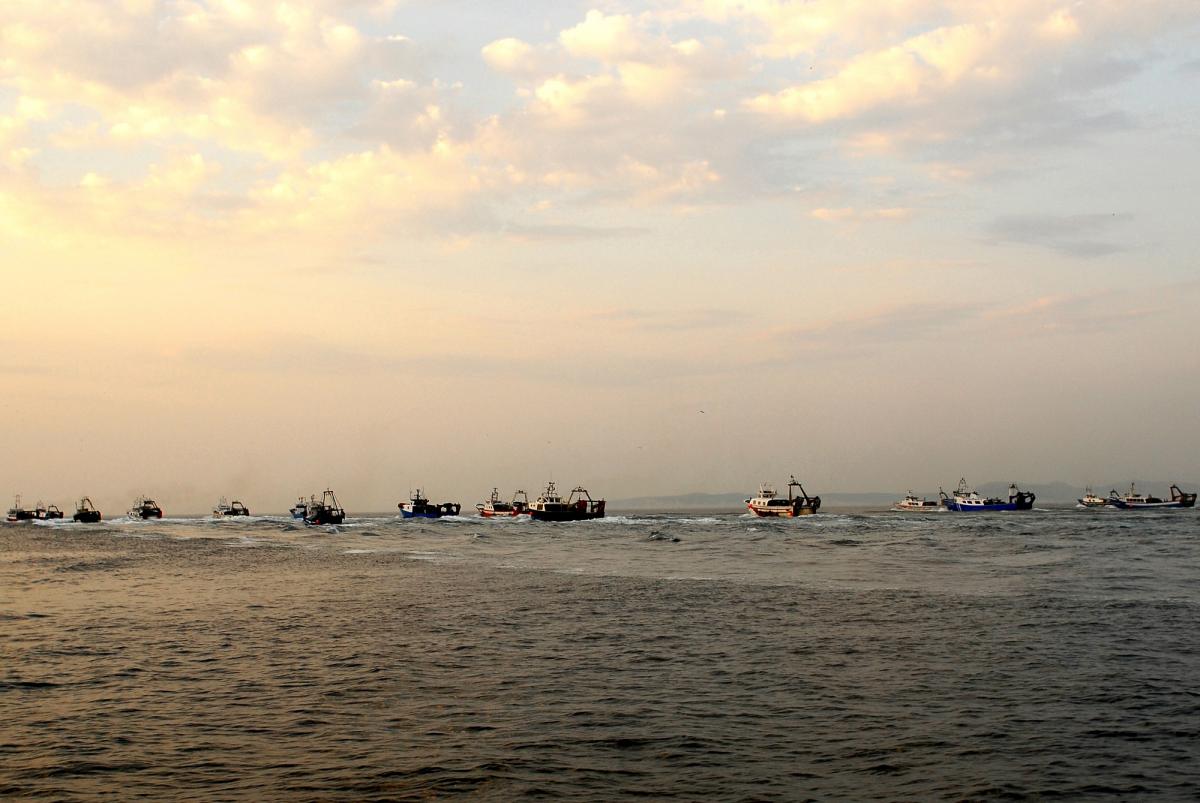July 30, 2020
Early to bed, early to rise, fish all day, make up lies: How illegal fishing is harming our oceans
Estimated reading time: 0 minutes
BY: Sarah Cameron
Topics: Stop Seafood Fraud
“Early to bed, early to rise, fish all day, make up lies.”
An expression used by some dads as they wake the kids up for an early morning fishing session can also apply to a more sinister side of fishing. Around the world, illegal, unreported and unregulated fishing is harming our oceans on a massive scale and the products of this shady phenomenon can end up on our plates without us ever knowing the alarming truth.
Illegal, unreported and unregulated fishing
Illegal, unregulated and unreported (IUU) fishing is one of the biggest problems facing fisheries management – and it has severe consequences for ocean ecosystems. It encompasses a range of activities: fishing without a permit, misreporting catch volumes, fishing in protected areas such as marine reserves or in another country’s waters, or vessels sidestepping conservation or management measures entirely. Globally, as much as one in five fish are caught through IUU activity.
This puts species at risk in even more danger by ignoring management measures in place to protect their populations. It can destroy coral and other seafloor habitat through the use of damaging gear like bottom trawls and it undermines efforts to responsibly manage and protect wild fish populations by skewing catch reporting data upon which regulators base fisheries management decisions. Because seafood supply chains are notoriously long and complex, products of IUU activity can enter the market and legitimate supply chains, labelled it with a new “legal” identity.

What is traceability?
To effectively protect the ocean from IUU fishing, we need to know what’s being taken out of it – and how. Up until recently, fishing that occurred in the dark was incredibly hard to stop. But today, new tools and an increasingly coordinated global effort mean that eradicating IUU is finally possible. Boat-to-plate traceability means tracking a product all the way from the water to our plates, and including information like the scientific species name, the country of origin and the who, what, where and when of fishing, processing and distribution.
Putting boat-to-plate traceability in place for all seafood bought and sold within a country’s borders provides the full picture of what is entering a market, meaning that countries can close their doors to products of illegal activity. By shutting off the demand for these products, every country can help put an end to the global threat of illegal fishing.
This might sound challenging to implement, but other countries around the world already require this type of information to travel with their seafood. Notably, the largest seafood market in the world, the European Union, is leading the way with stringent traceability and labelling requirements. Consequently, they have seen fraud rates drop significantly.
Canadian fishers who sell their products in the EU are already following these rules, yet fishers from other countries who sell their products in Canada are required to provide almost no information to Canadian consumers. In fact, current labelling requirements in Canada are so lax that seafood products are only required to be labelled with the last place they were processed, not their original point of catch or harvest. This means that a fish caught in country with a higher risk of IUU, for example, can be labelled “Product of the USA” on Canadian supermarket shelves, so long as the fish was processed there before entering the country. It’s misleading, to put it mildly.
Canada’s role
The Canadian government has acknowledged that IUU fishing and seafood fraud are serious problems that must be addressed, and the good news is that in 2019, they committed to developing and implementing boat-to-plate traceability. The government also recently ratified the Port State Measures Agreement — a significant international agreement aimed at preventing vessels that conduct illegal activity from entering a country’s ports — and contributed funding to Global Fishing Watch, which uses satellite technology and cutting-edge data analysis to increase transparency on the ocean. For example, by detecting when fishing is happening where it shouldn’t be, or if a vessel offloads its catch onto another vessel to launder it.
Increased DNA testing by the Canadian Food Inspection Agency (CFIA) could play an important role in combatting the practice of species substitution; however, a DNA test will not reveal if a fish was illegally caught.
The government has taken positive steps, but until robust traceability is put in place for seafood caught and sold within our borders, Canada is still contributing to the problem of IUU fishing and its terrible consequences for ocean ecosystems. If we’re going to erase the problem, rather than simply displace it, a multilateral effort is needed. The solution Canadians need is boat-to-plate traceability.

Help protect the ocean
Oceana campaigns around the world to save the oceans and feed the world. It is estimated that rebuilding wild fish populations globally and managing them responsibly could result in a catch of nearly 100 million metric tonnes of fish each year – enough to feed 1.1 billion people a healthy meal every day forever.
Without strong traceability measures, we can’t say for sure that the seafood on our plates wasn’t caught through illegal means that are contributing to the destruction of our oceans. We’re calling on the Canadian government to follow through on their commitment and implement a strong traceability system in Canada. Take action by signing our petition and telling the government to #StopSeafoodFraud.

